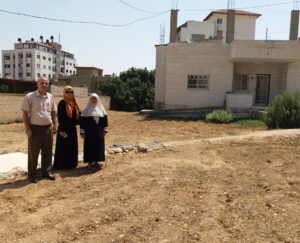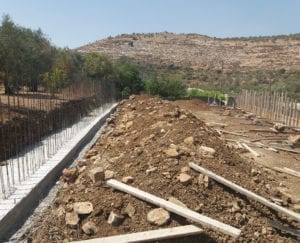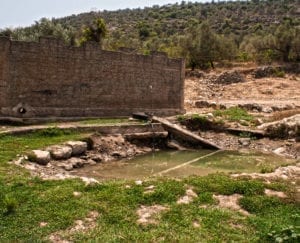Water is a scarce commodity in Palestine. An unfavorable climate, the restrictions imposed by the Israeli government and the poor state of the aquifers are the main causes.
In particular, Salfit, a municipality located in the north of the West Bank, suffers from a severe shortage of water for domestic and agricultural use. Its hydrological resources depend on about 80% of the Israeli company of Mekorot waters, and it regularly undergoes cuts in supply due to droughts and an uneven distribution of this commodity, which favors a growing number of Israeli settlements surroundings.
In this context, in March 2017, the Social Promotion Foundation launched the project “Improving the living conditions of small farmers in Salfit, Palestine through the right to access to water”, co-financed by the City of Madrid, for the rehabilitation of three springs and the flow of Al Matwi under an environmentally sustainable approach.
The first phase of rehabilitation work is expected to be completed in October. By then, the surrounding land will have been cleaned and fenced with a concrete wall, in order to protect the area and avoid contamination of aquifers caused by the farmers’ waste or sewage stream of the neighboring Israeli colony of Ariel, as it has been happening in the past, thus endangering consumers of spring water.
The project also has an important component that links access to water with food security and the empowerment of women. In this sense, the project includes the realization of training courses in urban gardens, in order to strengthen agricultural capacities. So far, 40 women who have acquired knowledge about soil care and preparation, planting of seedlings and seeds, irrigation methods adapted to places with water scarcity, fertilizer use, diseases and pest control and post-harvesting techniques to improve the quality of production. In a second phase, these women can benefit from the installation of an intelligent irrigation system in their orchards, and cultivate them with different trees and vegetables.




